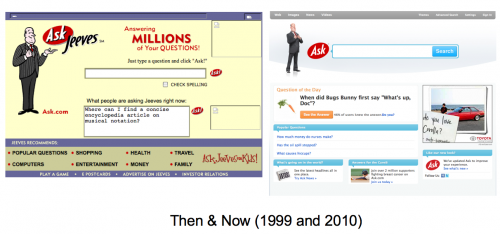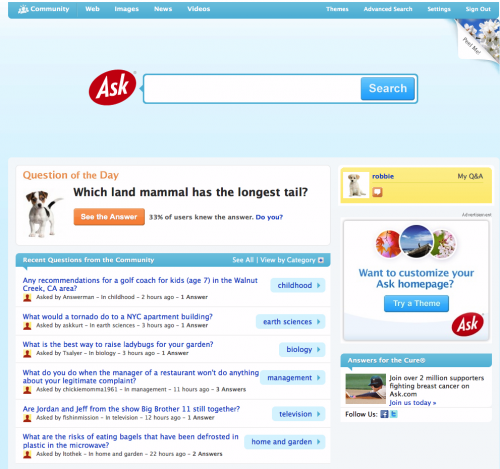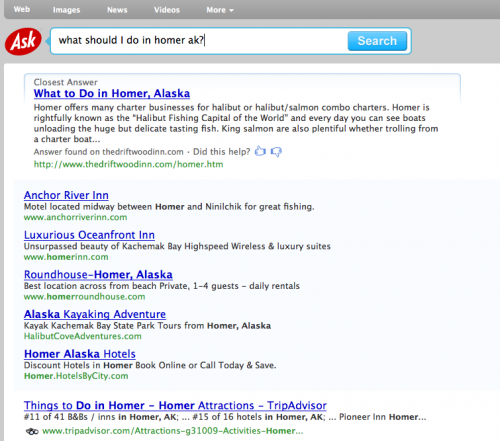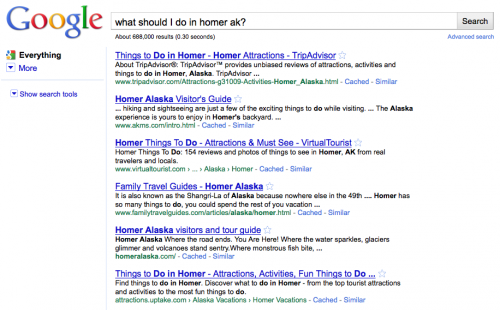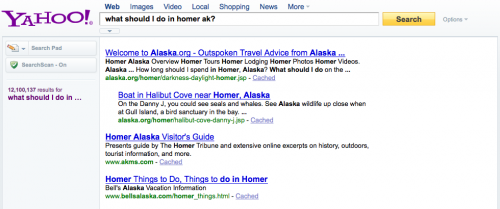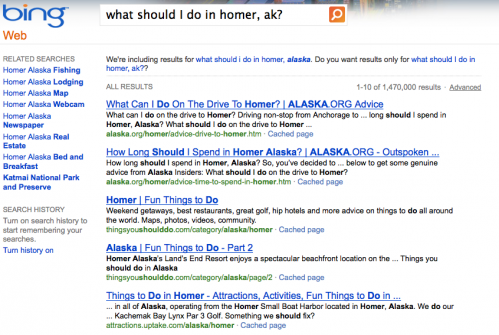Ask Comes Full Circle With “Q&A” Offering
As Matt posted earlier this evening Ask is in beta on a new approach to search, or perhaps more accurately: a return to an earlier approach but with greater experience and sophistication. The IAC-owned company is returning, conceptually, to its origins as a question & answer engine, when human editors were involved. This has been […]
As Matt posted earlier this evening Ask is in beta on a new approach to search, or perhaps more accurately: a return to an earlier approach but with greater experience and sophistication. The IAC-owned company is returning, conceptually, to its origins as a question & answer engine, when human editors were involved. This has been in the works since last year when Ask was calling it “social search.”
The company is making a serious bet that “Q&A” can be a differentiator for Ask and provide new appeal for the engine, which has seen flat-to-modestly-declining traffic over the past two years.
Ask has tried a number of things since 2008, after abandoning the innovative “3D” interface championed by former CEO Jim Lanzone (now at Clicker). None have really succeeded in moving the needle for the company, which has a stable core user base but can’t seem to generate new growth. Consistent throughout Ask’s history, however, has been the notion that its users frame their queries in the form of questions.
Ask President Doug Leeds told me that about 35 percent of all its search queries come in the form of questions. That is apparently 4X the number of “questions” the other search engines see.
Ask already has a huge database of “answers” that it can draw upon to respond to questions. The novel part is that it will be integrating community into search, by enabling users to send their queries to people in the community and receive an answer within 10 minutes (5 minutes is the ultimate goal). Answers will be delivered on the site, via email and eventually SMS I was told, making it a potentially valuable mobile tool.
The online landscape is already replete with Q&A sites and services. Here is an admittedly incomplete list:
- Aardvark (Google)
- Answers.com
- Askville (Amazon)
- ChaCha
- Facebook Q&A (not yet launched)
- kgb
- Quora
- Replyz
- Yahoo Answers (which just upgraded)
There are various, little-known free “ask a librarian” services from public libraries as well. Another site JustAnswer offers live chat with a subject-matter expert and charges a fee to users accordingly. This is similar to the structure of the now defunct paid Google Answers service that was shuttered several years ago. The kgb service also charges a small per-use fee to consumers but otherwise these are free services.
Ask sees itself as the only one among these services that can offer scale, sophistication and convenience. Yahoo Answers has scale, for example, but it’s not “integrated” into Yahoo Search, says new Ask Product Management SVP Tony Gentile, who came from vertical search site Healthline. Unlike several of the sites above Ask will have an “answer” for every question. The community is an adjunct feature to the search index itself.
There are a range of community features (that I don’t have screenshots of) enabling users to store their Q&A history and see other questions/answers offered by the community. I was told there will be a variety of methods to recruit and solicit community engagement. Interestingly there’s no Facebook or Twitter integration. (Facebook is currently testing its own Q&A offering.)
My conversation with Gentile and Doug Leeds yesterday led me to conclude that they’ve thought carefully about the new product and how to build their answer community. Execution is the key however. The question is: will the experience be good and interesting enough to convince people to use Ask more regularly vs. Google or Bing, which is also trying to provide “answers rather than links”?
Ask was unable to give me access to the site so I was unable to test it myself. However a hypothetical question I provided during the demo (“What should I do in Homer Alaska?”) elicited a good response from the existing database:
A comparable query on Google got a similarly good response, showing TripAdvisor as the first link:
Yahoo and Bing’s responses were also equally good, both showing Alaska.org as the first link:
This example illustrates the challenge; users comfortable with their search choices (Google, Yahoo, Bing) won’t necessarily see a reason to use Ask unless the Ask answers are better if not great — though the presentation of answers on Ask is differentiated.
Yet if Ask can build the community effectively, the integration of Q&A directly into search could prove to be a compelling feature and generate higher engagement and perhaps new usage.
The proliferation of all these human-answers services and the continuing identification of an opportunity in Q&A or “social search” shines a light on some of the frustrations and perceived inefficiency in search today. There’s a persistent notion that if one could only identify the right person or people a precise answer is waiting.
But when I said that no one had yet established a “brand” in the Q&A space, Leeds corrected me and said that there was already one — and it was Ask.
Contributing authors are invited to create content for Search Engine Land and are chosen for their expertise and contribution to the search community. Our contributors work under the oversight of the editorial staff and contributions are checked for quality and relevance to our readers. The opinions they express are their own.
Related stories
